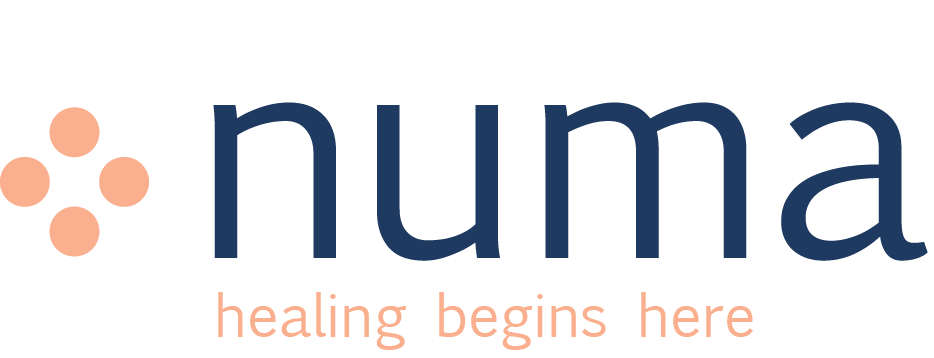The heart is one of the most central and important organs of the body. So, of course, alcohol and substance abuse affects the heart, too. Your heart health can influence the way your mind and body function. When these certain neurological and biochemical changes take place in a person’s body after prolonged alcohol and substance […]
Understanding the troubled teen industry is crucial when seeking help for your child. This industry encompasses various residential programs and facilities designed to address behavioral, emotional, and substance abuse issues in adolescents. However, not all programs are created equal. This article explores the troubled teen industry and sheds light on its complexities and potential pitfalls.
NUMA Recovery Centers is a Los Angeles-based rehab program that provides comprehensive treatment for teens seeking mental health and substance use disorder treatment. Our licensed mental health professionals provide a safe and structured environment for teens, which helps foster a supportive community essential for lasting recovery. Contact NUMA Recovery Centers to learn how our various therapy modalities can help your teen.
Quick Points
-
Despite huge number of youth participants annually, teen residential programs are fraught with issues like physical, psychological, and sexual abuse.
-
Parents should be aware of the potential pitfalls of youth intervention programs, such as boot camps, behavioral modification programs, conversion therapy, and residential programs.
-
Breaking Code Silence raises awareness and advocates the reform of such residential programs. Spearheaded by activists and other survivors, they have criticized facilities like Provo Canyon School, Straight, Inc., and Cross Creek Programs, among others.
Understanding the Troubled Teen Industry
The troubled teen industry comprises a wide range of interventions. These intervention programs include wilderness therapy programs, boot camps, residential treatment centers, and behavior modification programs.
These programs aim to address issues such as substance abuse, mental health challenges, and behavioral disorders. Unfortunately, while some facilities provide evidence-based treatments, others lack proper regulation and oversight.
As a result, youth participants enrolled in such residential centers become subject to physical and emotional abuse from unlicensed staff and even other participants. To avoid these potentially harmful environments, parents should stay informed to protect their children who are seeking treatment.
The Dark Side of Teen Residential Facilities: What Parents Should Know
Generally, teen residential facilities often promise comprehensive treatment for troubled teens. However, many suffer from abuse and neglect due to under-regulation, unlicensed staff, and resource constraints.
Parents should be vigilant about the potential for physical abuse, emotional neglect, and even sexual assault. Investigating the reality of these programs is crucial to safeguarding their children from harm, especially from institutions with a history of mistreatment.
Furthermore, advocates such as Paris Hilton, who speak out against abusive residential programs like Provo Canyon School, emphasize the critical need for reform and transparency. It is essential for parents to grasp these issues to make well-informed decisions regarding teen residential treatment.
The Reality of Wilderness Therapy Programs in the Troubled Teen Industry
Wilderness therapy programs are viewed as a popular intervention program in the troubled teen industry. This type of program is often considered for its experiential approach to behavioral and emotional challenges.
The wilderness therapy program aims to instill resilience and self-reliance through activities like hiking, camping, and group therapy in natural settings. However, concerns about their effectiveness and safety persist, with reports highlighting instances of harsh conditions, inadequate supervision, and the potential for physical risks.
Alleged Concerns Regarding Wilderness Therapy Programs
Among the issues reported about such programs include:
-
Abuse and trauma — Youth campers describe getting subjected to child abuse by staff members. Some of their experiences include sleep deprivation, tough love, lack of privacy, and other dehumanizing practices.
-
Lack of Oversight — These programs operate with minimal governmental oversight, which makes it easier for issues to go unnoticed. While brochures depict idyllic scenes, the reality can be far from healing and hope.
-
Facing Criticism — Wilderness therapy faces criticism from advocacy groups like Breaking Code Silence and even celebrities like Paris Hilton. Experts argue that unregulated programs fail to protect young people who need actual help.
Sexual Abuse in Teen Residential Treatment Centers
Once considered a safe haven for troubled youth, teen residential treatment centers have faced disturbing allegations of sexual abuse. Survivors from facilities like Cross Creek Program, Straight, Inc., Provo Canyon School—which Paris Hilton attended—and similar programs nationwide are now speaking out about their traumatic experiences.
Advocates estimate that residential programs accept young people numbering up to 100,000 annually. These youth plan to seek help for behavioral problems, suicidal thoughts, and substance abuse issues. However, several rehab centers lack proper oversight and fall below federal standards despite belonging in a multibillion-dollar industry.
Some facilities, particularly faith-based ones, have been accused of subjecting teens to physical, emotional, and sexual abuse. Parents must recognize the warning signs of physical or psychological maltreatment to protect their children from these predatory environments.
Challenges Faced by Family Members of Troubled Teens
Parenting a troubled teen can be incredibly challenging. As family members, you may encounter various difficulties while supporting your struggling adolescent. Here are some common challenges:
-
Emotional Turmoil — You may blame yourself for strained family relationships or feel overwhelmed by negative interactions. The stress surrounding family events or holidays can trigger fear and anxiety.
-
Isolation and Hesitation — Dealing with a troubled teen can lead to feelings of isolation. You might hesitate to reach out to other family members due to the complexity of the situation.
-
Lack of Support — Family members often suffer from a lack of emotional or financial support during tough times. This can impact your well-being and ability to cope.
-
Sleep and Focus Issues — The stress of managing interactions with troubled young people can result in trouble sleeping or focusing on other aspects of your life.
Why Some Parents View a Residential Treatment Center as a Solution
Due to the challenges family members face, they seek solutions in the form of youth residential treatment programs. However, family members of troubled teens face numerous challenges when seeking appropriate treatment.
Finding appropriate treatment is fraught with difficulties. Many treatment centers, such as boot camps and behavior modification programs, promise effective solutions but often lack proper oversight and employ unlicensed staff members. As a result, young people can be subjected to potential abuse and neglect instead of receiving the help they need.
Parents must navigate a complex and sometimes deceptive industry, as highlighted by youth survivors and advocates like those from Breaking Code Silence. State and local governments often fail to enforce regulations, which leave families to deal with the consequences.
Seeking Solutions: Ideal Residential Programs for Troubled Children
Troubled youth often struggle with behavioral issues, opioid addiction, and mental health concerns. As such, residential facilities for young people becomes a crucial option.
To avoid the pitfall of enrolling a child in a treatment programs that engage in harmful practices, here are some key aspects to consider:
-
Licensed and Regulated Programs — Ensure the residential programs are licensed and regulated by state and local governments to guarantee safety and adherence to standards in the troubled teen industry.
-
Qualified Staff Members — Look for programs that employ qualified staff members trained in handling troubled teens with issues like alcohol misuse, social media or drug addiction, and behavioral disorders.
-
Evidence-Based Practices — Choose programs that prioritize evidence-based practices, which are proven methods with solid foundation in treatment and recovery.
-
Safety Protocols — Select programs that prioritize the safety of young people and ensures a secure environment free from abuse or neglect.
-
Track Record of Success — Seek programs with a proven track record of successful outcomes and positive testimonials from a youth participant or their family member.
-
Transparent Treatment Approaches — Select programs that maintain transparency in their treatment approaches, and allows families to understand and get involved participate in the care process.
-
Positive Testimonials — Prioritize programs that receive positive feedback and testimonials from other participants, indicating a supportive and effective treatment environment.
-
Comprehensive Mental Health Support — Ensure programs offer comprehensive mental health support tailored to the needs of troubled teens, including issues like co-occurring disorders and eating disorders.
-
Regulatory Compliance — Verify that the program complies with all local and state regulations regarding the treatment of troubled children, which ensures legal and ethical standards are met.
How Can NUMA Help?
NUMA Recovery Centers recognizes the problems a vast majority of parents face when seeking the right treatment facility for their troubled children. That's why as a licensed detox and rehab facility, we offer programs tailored for young people who seek proper treatment and lasting recovery from mental illness and addiction. Visit NUMA Recovery Centers to learn more about the therapies we offer and they can help your children.
What is Aftercare? Aftercare programs are one of the most important parts of the recovery process. They include any type of care offered after the detox or residential treatment. Now that you’re sober, aftercare programs focus on how to keep it that way. They offer tools, strategies, resources, and support networks to make sure you […]
Opioid misuse has reshaped the landscape of public health in the United States, touching urban, suburban, and rural communities alike. In cities like Los Angeles—where access to prescription medications is widespread and stressors are high—opioid addiction has become an ongoing crisis that affects individuals, families, and the healthcare system at large. Many people still associate […]



